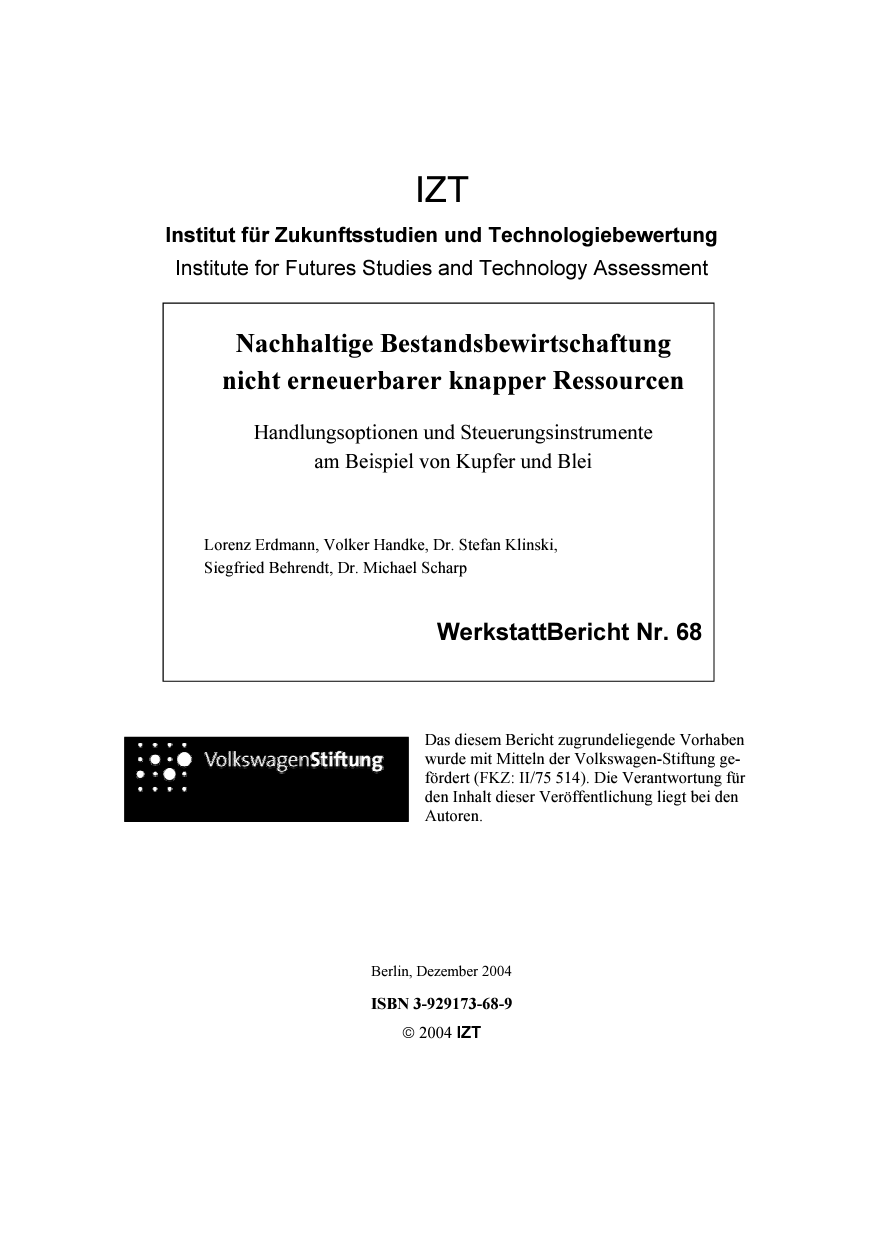Sustainable stock management of non-renewable scarce resources. Options for action and management instruments using the example of copper and lead
Abstract
The research project examines options for action and steering instruments to promote sustainable stock management of non-renewable scarce resources using the examples of copper and lead. Compared to other bulk metals, these are among the exceptionally scarce natural resources. However, the secondary material use rates of copper and lead in total production are only around 55 % each. Material family trees provide information on use patterns, value chains and actor interfaces. For ten priority fields of action, including electrical and electronic appliances, motor vehicles and buildings, the potential for sustainable inventory management was identified in more than 50 expert interviews, including product developers, environmental officers and representatives of associations and environmental authorities. Based on an analysis of inhibiting and promoting factors for recycling and substitution, promising measures were derived. The result is a mix of instruments for the promotion of sustainable copper and lead stockpile management that has been tested under political and legal aspects.
